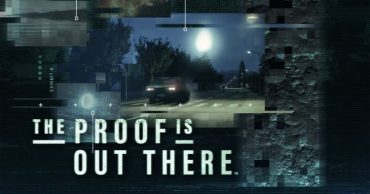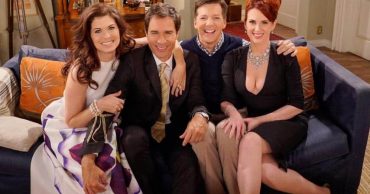
Some might describe “The Locked Room” as an hour-long diatribe against Christianity – and while there is definitely some truth to that idea, there are “broader ideas” (to quote Rust) at play in another paralyzingly haunting hour of True Detective, chief among them the search for meaning in life. As the one animal on the planet that craves self-definition, us humans find ourselves in this morbid chase towards the light at the end of the tunnel – and whether it’s God, happiness, or inner peace we seek, it all eventually leads to the same place: death, the unending darkness that hangs above everyone in the world of True Detective.
One of the many fascinating aspects of True Detective is how it uses the illusion of moral ambiguity to define its existential musings: Marty’s behavior isn’t one that represents the behavior of a complex, flawed man: it’s the behavior of a sociopath, a man who insists he isn’t a psycho while he chokes his mistresses’ date after seeing them together at a local watering hole. Marty clings onto an ideal of family and morality that he doesn’t abide to: but does it make him a “bad man”, or one that’s worse that Rust? Rust is just as disillusioned as Marty is (at least in 1995; the big distinction between them in 2012 is Rust’s ability to analyze and reflect on the events of the past), pretending that mowing Marty’s lawn wasn’t more than a favor, when in reality, Rust was desperately trying to feel like he was part of a family, something to moor himself to mentally and emotionally.
But while last week’s episode squarely painted Marty as a man willfully living a lie, “The Locked Room” charges everyone with this metaphysical crime: Rust might babble about the pointlessness of existence, but it doesn’t make him any less obsessed with it, even though he can recognize how meaningless it might be. Yes, the blanket of religion is one that blinds many to the larger things at play in the world: but living with that kind of enlightened knowledge (or at the very least, believing one is enlightened for knowing that fact) immediately prejudices him from ever attempting to embrace a life of faith, ultimately deeming his supposed ‘answers’ about the mysteries of life as unreliable as Marty’s ones based in the promises and deferred responsibility of the evangelical speakings they witness at the opening of the episode.
Ultimately, both Marty and Rust are miserable guys: Marty’s ignorance about himself is visibly tearing him apart, and Rust’s dedicated allegiance to his nihilistic views condemn him to a lonely life of handlebar mustaches and drinking problems. Although “The Locked Room” takes its share of shots at the Bible and organized religion as a whole, both of these self-professed “bad men” are unhappy because of the way they are. They’re unable to appreciate the things in their life: again returning me to the idea of the Holy Trinity, and the role of the Holy Ghost in illuminating the prophet and the priest onto the misconceptions of their ways. No, I’m not talking about divine intervention or a sudden religious rebirth: the end of “The Locked Room” shows us a man who lives at the intersection of both their ideals, the frightening, gas-mask wearing seer who will undoubtedly reveal to Rust and Marty how their various prejudices with the case (Rust’s serial killer theory clearly being one of them, given the questions of the investigators talking to Marty) led them to lie to themselves in the little ‘locked rooms’ of their brain. Reggie may or may not be the killer these two were looking for: but the monster exists at the end of the dream to wake us up from the false reality we’ve created in our mind, and the machete-wielding nightmare waiting the ‘Nam-like woods is going to shake the two men and their sense of humanity at its very core, in ways they may not recognize until 17 years later
Other thoughts/observations:
– “People would rather put a coin in a wishing well than make dinner.”
– Rust walking through the darkened hallways of the police records is a beautiful visual depiction of “walking through the valley of the shadow of the Death”.
– “People incapable of guilt usually have a good time.”
– Raise your hand if you’d like to spend any time in The Box with Rust…. I didn’t think so.
– with the Super Bowl dominating the airwaves next week, True Detective will return on February 9th with “Who Goes There.”
(Photo via Michele K. Short/HBO]
 Follow Us
Follow Us





